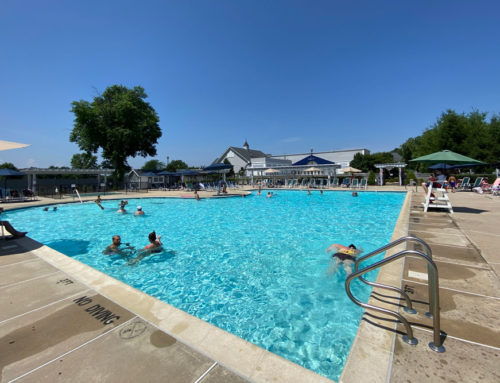When it comes to community facilities, who gets the final say in pool management? Is it the citizens of the neighborhood or the county where the facility is located? It’s always helpful to have qualified maintenance technicians and experienced lifeguards on staff to keep swimmers safe, but commercial facilities must also confront the harsh reality of finances to keep their doors open.
That’s the issue that the residents of Juneau, Alaska, are facing as the town debates whether or not the to turn the power of financial decisions on two community pools over to a special committee. Instead of listening to residents’ desires, the “empowered board” would make independent decisions on budgets and revenue generation, but they would still be affiliated with the local administration, KTOO News reported.
Who gets the checkbook?
You might not think of Juneau as a premier swimming destination, but even residents in cold areas need to enjoy a dip every once in a while. However, fewer opportunities to swim hasn’t made running commercial facilities any more affordable. Juneau is facing a $12 million budget shortfall in 2014, and like many other cities around the country, municipal officials have their cost-cutting attentions focused on pools.
Juneau only has two commercial pools for the city’s 32,000 residents, but that hasn’t deterred the Juneau Assembly from raising a ballot measure that would the shift the financial onus of pool management of Augusts Brown Swimming Pool and Dimond Park Aquatic Center to a private board that would make its own decisions for each facility regardless of the desires of Juneau’s citizens.
Bonnie Chaney, a retired budget analyst for Juneau, told KTOO News that she doesn’t know why the city is trying to fix something that isn’t broken.
“City employees, they’ve been tasked with looking for all the efficiencies that they can find in all of the city operations and the city’s open to suggestions from citizens,” she said. “And if it’s a good idea, the city will implement it. So I don’t see where an empowered board is going to improve the efficiencies of running the pools.”
Chaney wasn’t the only one to call for the empowered board to be voted down. At an April 2014 public hearing on the proposed handing over of the city’s pools, a packed city hall assembly room told officials that they would even be willing to pay higher fees to keep the pool under municipal jurisdiction.
Empowered decisions
While citizens might have a knee-jerk reaction to the city handing over the keys to their favorite commercial facility, the empowered board option has just as many supporters as its counterpart. The goal is not just to reduce operating costs, but to generate revenue from marketing and branding campaigns as well. It’s not enough to just use more efficient chemicals or to run your filter for one less hour every night – pools also need to draw more patrons in.
In an op-ed for JuneauEmpire.com, Max Mertz, former chairman of the Dimond Park Aquatic Center Task Force, Reed Stoops, former chairman of the Juneau Planning Commission, and Jeff Bush, former member of the Juneau Assembly, argued that the empowered board would essentially function as a more specialized version of the Parks and Recreation Department that currently oversees the two facilities. With a small group of city-approved board members, Mertz, Stoops and Bush believed that the empowered board would be able to spend more time addressing the pools’ financial troubles than the city can currently allot to them.
“My previous experience working with … empowered boards, is that great things have happened,” Rosemary Hagevig, a member of the Aquatic Facilities Advisory Board, told KTOO News. “I think we have some excellent models to work from and I think we’ve got nowhere to go but up here.”
Compounding Juneau’s financial woes is a recent bargaining agreement with city workers to increase pay by 5 percent. In an effort to make up the budget shortfall, the empowered board emerged as a both a cost-effective and revenue-generating option. Some citizens might be wary about putting their beloved commercial facilities in the hands of an exclusive board, but if the choice is between that and no pool at all, the choice is simple.






